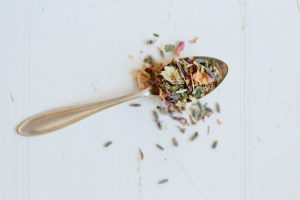The Naturopathic Co.

You're using an outdated browser. Please upgrade your browser to improve your experience.
SPEEDREAD>>
Fever due to an acute infection is a host defense; the immune system’s defense mechanism against pathogens. As a parent I understand that discovering your child has a fever can be worrisome and sometimes quite scary, particularly the fear of febrile seizures, however we must also be aware that the aggressive suppression of symptoms of an acute condition can be counterproductive.
Did you know? The increased temperature during fever inhibits the ability of the virus or bacteria to replicate, by enhancing chemotaxis and neutrophil migration, promoting heat shock synthesis, enhancing phagocytosis, and lowering serum iron levels (Cunha 2012).
Traditional herbal practice supports the idea that the stronger your vital force, the better your fever will be. That is to say, that your fever should be short and sharp (within a period of approximately 6-8 hours) and should be closely monitored every 30 minutes to ensure it is not too high.
When to intervene?
For children, there is a common practice of bringing fever down by use of paracetamol or ibuprofen, particularly in younger children due to perceived risk of febrile seizures. Some fevers need to be managed, there is no doubt. Measures should be taken when a fever becomes too high. Intervene if the temperature is over 38.3°C in an infant and 39°C in a child (Hechtman 2012).
Are there possible negative effects of antipyretics?
Two important studies have suggested that antipyretics are ineffective in reducing the recurrence of febrile seizures (Rosenbloom 2013), and there are even compelling studies linking the incidence of asthma to paracetamol use early in infancy (Weatherall 2015).
Another large study showed that paracetamol given to children prior to 15 months of age was linked to an increased risk of asthma by the age of 6 (Wickens 2011), and another study showed that paracetamol given to children within the first year of age linked to increased risk of asthma (Beasley 2008).
That’s not to say that paracetamol or ibuprofen should not be used, however it does act as a reminder that these pharmaceuticals should only be used when entirely necessary as the use of antipyretic treatment, particularly in mild fever, has become very widespread. Dosing of paracetamol and ibuprofen should be by weight rather than age of the child, and ibuprofen should not be administered under the age of 6 months.
What can we do during a fever?
Monitor regularly (every 30 minutes) and allow the fever to run its natural completion so that it resolves quickly.
Intervene with the use of paracetamol if the temperature is over 38.3°C in an infant and 39°C in a child (Hechtman 2012).
Herbal teas such as yarrow, elderflower and peppermint may also be considered, which is a good way to keep fluids up in order to prevent dehydration. Use 1 teaspoon per cup of boiling water and infuse for 10 minutes. Ensure tea has cooled adequately first. Infants may start on 30mL 3 times a day.
Lukewarm sponging is not associated with any adverse effects and is therefore recommended.
What about prevention?
Seek advice for boosting long term immune function. Some of the most common recurrent childhood infections are ear infections, tonsil infections, respiratory tract infections, dermatological infections, gastrointestinal infections, urinary tract infections, staphylococcus aureus, and streptococcus bacteria.
Recurrent infections are a sign that the immune system is compromised, which may be due to a number of factors that can be investigated by your naturopath.
If your child is unwell, seek professional medical advice.
Yvette is a qualified Melbourne-based Naturopath and Nutritionist, MINDD Practitioner, member of the Naturopaths and Herbalists Association of Australia, and Complementary Medicine Association. Yvette specialises in the treatment of conditions commonly affecting women and children, with a key interest in children’s digestive and neurological conditions, as well as women’s hormonal concerns, digestive issues, fatigue, anxiety, and skin concerns. Yvette consults in South Yarra, Melbourne, as well as Australia-wide via skype/zoom/phone.
References
https://www.ncbi.nlm.nih.gov/pubmed/22015255
https://www.ncbi.nlm.nih.gov/pubmed/23702315
https://onlinelibrary.wiley.com/doi/10.1111/cea.12410
https://www.ncbi.nlm.nih.gov/pubmed/20880297
https://www.ncbi.nlm.nih.gov/pubmed/18805332
Hechtman, L. (2012). Clinical Naturopathic Medicine (1st Ed.). NSW, Elsevier Australia.
Comments are closed.